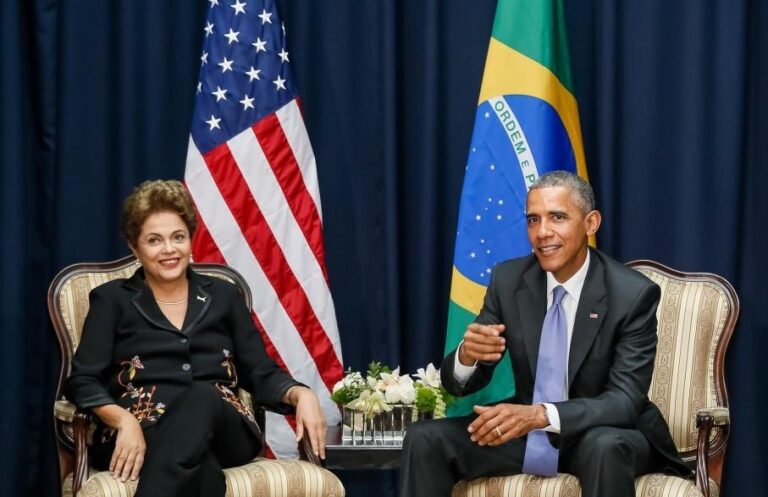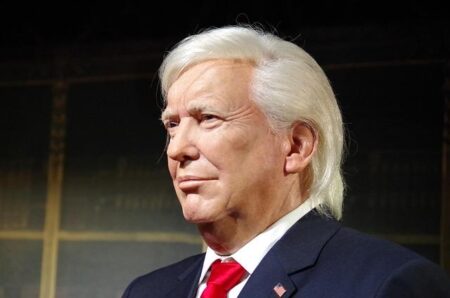Tensions between the United States and Brazil have reached a critical low following the recent conviction of former Brazilian President Jair Bolsonaro. The verdict has sparked a diplomatic storm, with officials on both sides grappling with the fallout amid an already fragile bilateral relationship. As geopolitical stakes rise, experts warn that this unprecedented legal and political upheaval could significantly disrupt cooperation on trade, security, and regional stability. This article examines the implications of Bolsonaro’s conviction on US-Brazil relations and the broader impact on Latin American geopolitics.
US Brazil Diplomatic Ties Strain Further Following Bolsonaro Conviction
The recent conviction of former Brazilian President Jair Bolsonaro has sent ripples across the diplomatic landscape, further straining an already fragile US-Brazil relationship. Ties between Washington and BrasĂlia have faltered amid accusations of political interference, with US officials expressing concern over the legal proceedings and their implications for democratic stability in Brazil. The conviction has sparked a series of diplomatic exchanges marked by tension, impacting ongoing collaborations in trade, security, and environmental policy.
Key areas affected include:
- Trade negotiations: Several talks have been postponed indefinitely, with both sides adopting cautious stances.
- Environmental cooperation: Joint efforts against deforestation in the Amazon face new uncertainties.
- Security collaboration: Intelligence sharing and military exercises are under review amidst growing mistrust.
| Impact Area | Before Conviction | After Conviction |
|---|---|---|
| Trade Talks | Ongoing, positive outlook | Paused, negotiations stalled |
| Environmental Programs | Active collaboration | Reduced coordination |
| Security Cooperation | Strengthened alliances | Under critical review |
Economic and Security Implications for Regional Stability and Cooperation
The verdict against Bolsonaro has sent shockwaves through the economic landscape of South America, casting uncertainty over trade agreements and investment flows between the United States and Brazil. As the largest economies in the region, their strained ties risk undermining key infrastructure projects and cross-border initiatives that have long fostered regional development. Foreign investors are already exercising caution, leading to fluctuating currency valuations and a slowdown in bilateral trade. Key sectors vulnerable to this upheaval include:
- Energy cooperation, particularly in renewable projects
- Agricultural exports and commodity markets
- Joint defense technology ventures
On the security front, cracks in the alliance complicate ongoing efforts to combat transnational threats such as drug trafficking, cybercrime, and illegal mining. The ripple effects are palpable, with neighboring countries observing an erosion of coordinated patrols and intelligence sharing. Below is a snapshot of shifting security dynamics:
| Security Aspect | Before Verdict | After Verdict |
|---|---|---|
| Intelligence Sharing | Robust & Ongoing | Significantly Reduced |
| Joint Military Exercises | Regular & Coordinated | Postponed or Canceled |
| Border Security Initiatives | Collaborative Efforts | Increasingly Fragmented |
Strategies for Rebuilding Trust and Enhancing Bilateral Engagement
In the wake of strained diplomatic ties following Bolsonaro’s conviction, both the United States and Brazil must prioritize diplomatic dialogue to mend fractured relations. Initiating high-level bilateral talks focusing on mutual economic interests and environmental cooperation can lay the groundwork for renewed trust. Engaging civil society and business leaders through joint forums will further foster transparency and collaboration, ensuring that policy shifts are inclusive and widely supported.
Practical steps to advance bilateral engagement should include:
- Establishing a bilateral task force dedicated to resolving trade disputes and promoting sustainable investment.
- Enhancing cultural and academic exchanges to rebuild people-to-people connections and counteract political polarization.
- Reaffirming commitments to climate initiatives where both nations can lead on global sustainability efforts.
| Key Focus | Potential Outcome |
|---|---|
| Economic Cooperation | Increased bilateral trade by 15% over 2 years |
| Environmental Policy Alignment | Joint initiatives to reduce deforestation by 30% |
| People-to-People Ties | Expansion of exchange programs by 40% |
Concluding Remarks
As US-Brazil relations enter an unprecedented period of tension following former President Bolsonaro’s conviction, both nations face a critical juncture. The verdict not only signals potential shifts within Brazil’s domestic political landscape but also poses significant challenges for diplomatic and economic ties with the United States. Moving forward, policymakers on both sides will need to navigate this complex terrain carefully to avoid further deterioration and to preserve the long-standing partnership between the two democracies. The global community watches closely as this pivotal moment unfolds, with implications that extend well beyond the Americas.




